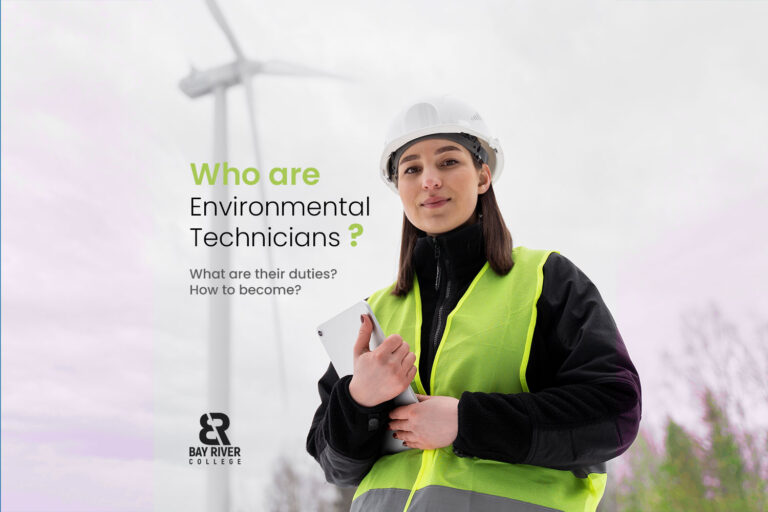The Unsung Heroes of Sustainability: The Environmental Technician
In the age of climate change and growing environmental concerns, the role of the environmental technician has never been more vital. While they might not always grab the headlines like climate activists or pioneering scientists, these dedicated professionals play a crucial role in protecting our planet. In this blog post, we’ll dive into the world of environmental technicians, exploring who they are and the essential work they do.
Who is an Environmental Technician?
An environmental technician is a skilled and passionate individual who specializes in monitoring and managing environmental issues. These professionals are on the front lines of sustainability, working diligently to safeguard natural resources, prevent pollution, and also ensure that industries and communities adhere to environmental regulations. Environmental technicians can be found in various sectors, including government agencies, private companies, non-profit organizations, and research institutions.
Key Responsibilities
Environmental technicians wear many hats, and their duties vary depending on their specific role and the sector they work in. However, some common responsibilities include:
Data Collection
Environmental technicians collect data from the field, often using specialized equipment and techniques to measure air quality, water quality, soil conditions, and more. This data forms the foundation for environmental assessments and regulatory compliance.
Monitoring and Analysis
They continuously monitor environmental conditions, keeping a watchful eye on changes that may indicate pollution, habitat degradation, or other issues. Their analytical skills help identify trends and potential problems.
Compliance and Regulation
Environmental technicians ensure that businesses and individuals adhere to environmental laws and regulations. They may conduct inspections and audits to assess compliance and recommend corrective actions when necessary.
Conservation Initiatives
Many environmental technicians actively participate in conservation efforts, such as habitat restoration, reforestation, or wildlife monitoring. They play a crucial role in preserving biodiversity and ecosystems.
Public Education
Some environmental technicians engage in community outreach and education programs to raise awareness about environmental issues and encourage sustainable practices.
Technology and Innovation
With the rapid advancement of technology, environmental technicians increasingly use cutting-edge tools like GIS (Geographic Information Systems) and remote sensing to enhance their monitoring and analysis capabilities.
Why Environmental Technicians matter?
Environmental technicians are the unsung heroes of sustainability for several compelling reasons:
Environmental Stewardship
They are at the forefront of protecting our natural environment, ensuring that it remains healthy and sustainable for future generations.
Regulatory Compliance
By enforcing environmental regulations, they hold industries and individuals accountable for their impact on the environment, helping to mitigate environmental harm.
Data-Driven Decision-Making
Their data collection and analysis provide critical information for policymakers, scientists, and organizations to make informed decisions regarding environmental management.
Community Engagement
Environmental technicians often bridge the gap between scientific research and public understanding. They engage communities in environmental issues, fostering a sense of responsibility for the planet.
Adaptation to Climate Change
In an era of climate change, environmental technicians play a pivotal role in monitoring and responding to shifts in environmental conditions, helping communities adapt to these changes.
How to become an Environmental Technician?
Environmental technicians may not always be in the spotlight, but their dedication and expertise are invaluable to the global effort to protect our planet. As we face increasing environmental challenges, these professionals continue to work tirelessly behind the scenes, ensuring that we have a sustainable future. We acknowledge and appreciate their vital contributions to the cause of environmental preservation in Canada.
Bay River College offers two-year Applied Environmental Technology diploma program. The program offers an overview of air and noise pollution, water and wastewater treatment, solid waste management and in-depth techniques on environmental site characterization, soil and groundwater contamination assessment, risk assessment and also management and remediation of soil and groundwater. If you have question about this program contact us.

